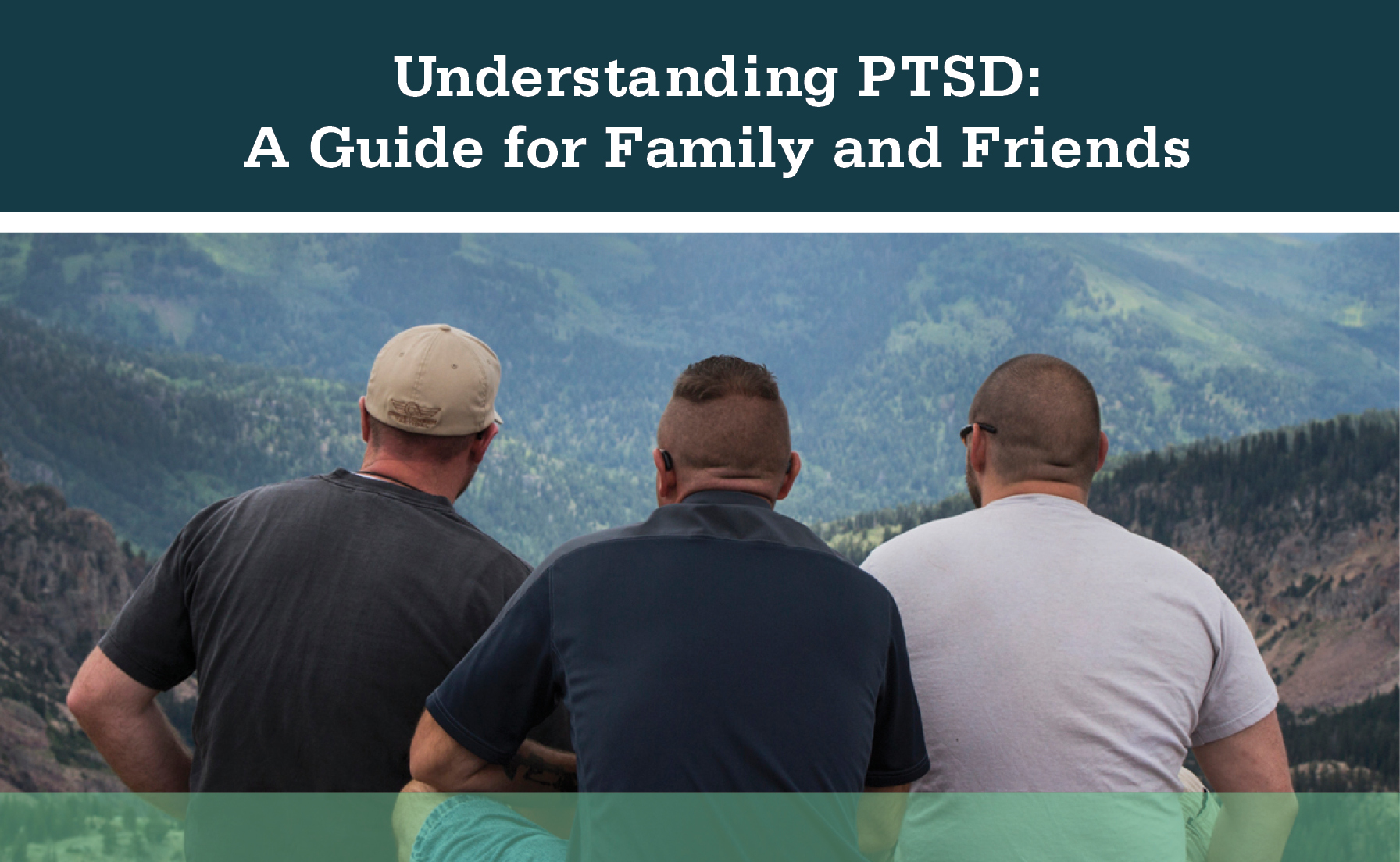PTSD: National Center for PTSD
Grief: Helping Someone Else After a Loss
Grief: Helping Someone Else After a Loss
Available en Español
It is not always clear how to help someone manage grief. You may have to make choices about how to offer support to someone after a loss. Learn about factors that may affect your options and some ways you can be there for someone who is grieving.
Reading time: minutes
Strategies for Offering Support
When you reach out to help someone who is grieving a loss, several things can affect your choices. These factors can include the amount of time that has passed since the loss, your personality, the grieving person's personality, the nature of your relationship, your past experiences, and the amount of time and energy you may have to be of support. Supporting someone who is grieving a death resulting from a disaster or public health crisis presents its own challenges, perhaps making it difficult to physically be together. Here are a few strategies that may be helpful:
Let the person know you are there for them
Sometimes friends, family and coworkers can disappear after a loss. They may not know what to say, worry they will say the wrong thing or overstep, fear causing more pain, feel somehow guilty about the death, or fear they can't do enough to make the grieving person feel better. Some people may see a person drowning in sorrow and then worry that they will be dragged under too. Don't let these doubts and fears get in the way of reaching out to let the person know you care. Even people who have endured the worst suffering often can benefit from an expression of caring, or from practical assistance, being included in activities, or a simple conversation.
Know what is most helpful
Two things people in pain commonly want to know are that they're not "crazy" to feel the way they do, and that they have support. Those who are grieving don't expect you to "fix" their pain but do need to know that you are with them in their suffering. You can say something like, "I know you have to be hurting, and maybe you don't know what will happen next, and neither do I. But you won't go through this alone. I will be there with you."
Particularly if you are not close to the person, it may be tempting to quickly say, "I'm sorry for your loss," or offer platitudes—or common statements—like, "It's going to be okay," which can leave a person wondering, "How do you know it is going to be okay?". Even saying, "You will get through this," may be hard for the person to believe under the circumstances. Instead of statements like these, try letting them know that you're in it with them, by saying something like, "We're here for you, whatever you need." Or you can send text messages, emails or cards with the message: "You are not alone," "I'm thinking of you," or, "We're here for you."
A survey of people who were grieving studied what they felt was helpful and what was not, particularly soon after a loss. Helpful support included direct expressions of empathy, willingness to talk about the deceased (including saying their name), offers of practical support, asking about the impact of the death, and acknowledgement of the difficulty of the situation. Less appreciated were a casual or passive attitude, statements that the death was in any way for the best or acceptable (e.g., "It was their time to go." or "It's God's will."), avoiding talking about the death or the person who died, and assumptions that the bereaved person was strong and could easily get through the grief period. If the grieving person expresses these thoughts, you can respectfully acknowledge the feeling or thought, but don't begin with statements like these yourself.
Be sincerely interested and caring
Be an "opener." Openers are people who ask questions and listen to the answers without judging. They are naturally curious and enjoy learning about and feeling connected to others. In helping others through grief, the most effective openers don't always have to be the closest of friends. Openers can make a big difference in times of crisis, especially for those who are normally reserved, or worried about being a "burden" on others by starting conversations about their feelings.
Read more about engaging in supportive conversations in Tips for Providing Support to People Affected by Disaster Events.
When asking questions, it's important to convey sincere interest or your questions may come across as insincere. Simply asking, with real feeling, "How are you today?" shows that you are aware that a person may be struggling to get through their day. It also shows understanding that the most intense levels of grief might not be constant or permanent.
Offer empathy
If you do not feel comfortable asking questions or starting a conversation with the grieving person, you could send a text message with something simple like, "I know I can't possibly know what you're going through, but I'm here for you. I've been thinking about you." Offer empathy with the message that the person is not alone. If you have been through a similar loss, you might let the person know, without sharing too much of your own story at first but offering to talk more if it would help.
Offer a menu of options for support
Rather than making assumptions about whether the person wants to talk, offer a menu of options and see if they take any of them. Simply showing up can make a huge difference. Say, "I'm here if you ever want to talk—now, later, even in the middle of the night. Whatever would help you." You can let the person know that if they need you, they can call any time. Just knowing it's an option may be enough for the person to feel better, even if they never take you up on the offer.
Often, you might sincerely ask, "Is there anything I can do?" but the person does not have an answer. The question may make the person feel as if they should know what they need, even if they don't. Or, they might know of things that would be helpful but feel that it would be too much to ask of you. It may be more helpful for you to offer some practical or supportive action. Rather than offering to do "anything," offer to do something specific—like mowing the lawn, picking up family, holding the person's hand, or bringing food. Or you can just make the choice to do something for the person but give them some measure of control in the process. Specific acts help because instead of trying to fix the problem, they free up the person to have more time to grieve in their own way.
Most importantly, show up over and over, and make it clear that you will be there when the person needs you.
Be genuine and reliable
Grieving can come in waves and last a long time. Continue to check in with the person regularly. Make it clear that you truly want to help, so they don't feel like a burden. Convey the message, "I'm checking in because I care about you. I just want to let you know that I'm here." Or find ways to spend time with them without the need for talking. Caring for someone in this way means that when they are hurting, you cannot imagine being anywhere else.
Many who are grieving find that they really appreciate contact months later, when most interest has dropped off. This is especially true on anniversaries, birthdays, or holidays that remind them of their loss. A text, call, card or email can be a much-needed reminder that even over time, they are not alone.
As the worst of the grief fades, the person may feel the need to restore balance in their friendships, so they don't feel one-sided. They may want those close to them to know they are there to help carry their troubles too. Make sure you allow this shift and let them offer help or assistance in other ways, so that they benefit from feeling like they have something to contribute to the friendship.
Be sensitive to unique factors that affect the person
There's no one way to grieve and there's no one way to comfort. And what helps a person one day might not help that person the next day. When someone is suffering, think about how they might want to be treated. The person who is grieving may worry about stigma and feel less able to talk openly as a result. They may experience anger, lower functioning, or illness. Try to avoid judgment. Take your cues from the person and respond with understanding or action that meets their needs.
Help challenge the person
Some people might need to be reminded that, though grieving, they still need to set and achieve goals at work, school or in other areas of their lives. Challenging someone could backfire, but if you know the person well enough, encouragement like this might provide a needed jolt of confidence. A gentle reminder that they could fail by failing to try may help. You may also challenge them to reach out for more formal help from a mental health professional, mentor, or clergy member, if they are experiencing a significant amount of emotional pain or struggling to function for an extended time.
You May Also Be Interested In

Understanding PTSD: A Guide for Family and Friends (PDF)
What you need to know to help yourself and your loved one with PTSD.

























